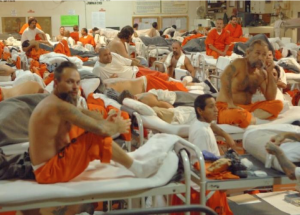On April 9, 2015, Springfield KSPR News Channel 33 reported that the Greene County Jail has ceased to accept City of Springfield municipal prisoners. While this may seem like a dispute that affects only the City of Springfield and the Greene County Jail, this article sheds light on how jail policy changes impact the entire bail bonds industry.
In the case of Springfield, judges are being lenient towards bail bondsmen by releasing agents from city bonds. There is concern that, with over 16,000 un-served warrants, persons with warrants will take advantage of bail bondsmen and the courts.
Jail practices have a consistent spot in the news. The primary concerns regarding jail overcrowding often drive policy changes. In some instances, jail overcrowding is construed as inhumane and unconstitutional. More frequently, local governments are concerned that overcrowding causes financial burdens on taxpayers while threatening public safety. Despite the reason for a jail to change its policies, outlying stakeholders like the bail bonds industry are often overlooked in the decision-making process.
In most cases, bail bonds companies alleviate the pressure of jail overcrowding by allowing people to post bail and wait for their court appearance while continuing life as usual. However, when a jail changes their policies,  they are affecting the efficacy of bail bonds companies. In cases like Springfield, the jail stopped accepting city prisoners. This means that bail bonds companies have to hold the prisoner in custody until a judge can see them. As you can imagine, this is a significant imposition to bail bonds companies in terms of infrastructure, liability, and costs. While this is a significant issue in Springfield, laws and policies change around the country frequently. At any moment, a jail can decide to change their intake policies and affect the local law enforcement agencies, bail bonds companies, courts, and more.
they are affecting the efficacy of bail bonds companies. In cases like Springfield, the jail stopped accepting city prisoners. This means that bail bonds companies have to hold the prisoner in custody until a judge can see them. As you can imagine, this is a significant imposition to bail bonds companies in terms of infrastructure, liability, and costs. While this is a significant issue in Springfield, laws and policies change around the country frequently. At any moment, a jail can decide to change their intake policies and affect the local law enforcement agencies, bail bonds companies, courts, and more.
For example, if a jail begins to refuse misdemeanor intakes, this can cause a labor burden to local police departments. This added labor might mean that police are not available to assist bail bondsmen with serving warrants or overseeing high-risk recoveries. Policy changes could also lead to more people missing court appearances, resulting in more incarceration and a higher risk of bail default. Depending on the policy change, a bail bonds company can have a large spectrum of business impacts.
So do Jail Policy Changes Impact the Bail Bonds Industry? Absolutely.
That doesn’t mean we can’t participate in a change. Bail bonds companies should establish a respected network between the jails, courts, and police departments. As business owners and a stakeholder, we should communicate clearly and often with the jails to ensure the impacts of policy changes are well understood. We should also lobby for ourselves, staying informed of local, state, and national legislation that may affect the jails system or bail bonds industry. We must not passively respond to policy changes. Instead, we must rally for our businesses and our industry to ensure we are not at risk for an imposition like the bail bonds industry of Springfield, Missouri, is experiencing.
